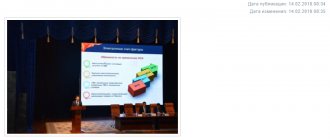When transitioning or initially choosing a simplified taxation system, the relevant business entities must immediately determine which simplified tax rates they will use in 2021. There are two options: applying a fixed tax rate to the total amount of income received or an increased rate to income, but reduced by expenses incurred. The amount of tax, the procedure for its calculation and the rules for accounting for costly transactions depend on the object of taxation. We'll tell you how much the simplified version will cost today.
Who does not suit the simplified tax system?
Both entrepreneurs and companies can work on the simplified tax system, but with restrictions. If any of these conditions are violated , for example, a company opens a branch or its turnover increases, it will have to switch to a general taxation system.
- Restrictions on the type of activity. Banks, alcohol and cigarette manufacturers, insurance companies, microfinance organizations, pawnshops, outstaffing companies, gambling organizers, notaries and lawyers cannot work on the simplified tax system; professional participants in the securities market: brokers, dealers, securities managers and others from Chapter 2 of Law No. 39-FZ
- Restrictions on organizations. State and budgetary institutions, payers of the unified agricultural tax, participants in production sharing agreements, non-state pension and investment funds, foreign organizations.
- By number of employees. The staff, including employees registered under civil contracts, should not exceed 100 people.
- By turnover. For 2021, companies and individual entrepreneurs can work on the simplified tax system if their turnover does not exceed 150 million rubles per year.
- At the cost of fixed assets. The accounting residual value of fixed assets and intangible assets of a company or individual entrepreneur should not exceed 150 million rubles. However, only property that was purchased at RUR 100,000 or more is taken into account. Rights to computer programs, patents and other intangible assets are not included in the limit. The conditional Startup LLC, which owns the rights to applications in Epstore worth 200 million rubles and three computers worth 500,000 RUR, can work on the simplified tax system.
- By share of other organizations. A company cannot operate under the simplified tax system if other organizations own more than 25% of its authorized capital. If you are a big business with investors, switch to OSN.
- By branches. The company must not have branches.
Preferential areas of activity
Special conditions apply to certain types of activities. Federal Law No. 335 came into force on November 27, 2021. It provides a list of preferential activities in which entrepreneurs have the right to count on a discount under the simplified tax system. The discount amount is 20%. Individual entrepreneurs can pay insurance premiums at reduced rates if their activities fall under the list below.
OKVED 2 code:
- 10. Food production;
- 11. 07. Production of soft drinks;
- 13. Textiles and its production;
- 14. Clothing production;
- 15. Production of leather goods;
- 16. Wood products;
- 17. Paper production;
- 20. Chemical production substances;
- 21. Production of medicines;
- 23. Production of mineral products;
- 24. 34. Wire production;
- 25. Production of finished metal products;
- 28. Production of equipment for machines;
- 38. Collection and treatment of waste;
- 43. Construction work;
- 63. Activities in the field of information technology;
- 96. Personal service activities.
You can find out more about this list in Federal Law No. 335-FZ. In total, the list contains about 40 types of activities that may be eligible for benefits when paying under the simple fee payment regime.
Federal Law 335-FZ regulates all the nuances of the simplified taxation system for individual entrepreneurs
In the future, it is planned that the law on preferential activities will be completely revised due to the fact that the experience of past years has shown that citizens carrying out their activities in the format of preferential activities do not experience problems with paying the simplified tax system. As a result of this observation, the reduced payment rates will be limited to charities that operate on a not-for-profit basis.
Other types of activities will pay fees according to the simplified tax system without any concessions. This law exists as a draft and may be applied in January 2021. In the meantime, the bill continues to be amended, and there is debate about reducing the list of preferential industries.
What types are there
- STS "Income"
Tax is paid on all money received. Expenses for goods, equipment, and employee salaries are not taken into account. In most regions, the tax is 6% of income. But some have a reduced rate - from 1% to 6%. For example, in Crimea 4%.
- USN “Income minus expenses”
Tax is paid on the difference between income and expenses. The tax rate is from 5% to 15%. It is determined by regional authorities:
- The simplified tax system rate in Moscow is 15% for everyone, 10% for those who do business in the field of social services, sports, livestock farming and others from the law of the city of Moscow.
- The simplified taxation system rate in St. Petersburg is 7% for everyone.
- The simplified taxation system rate in Yekaterinburg and the Sverdlovsk region is 7% for everyone, 5% for those doing business in the field of education, healthcare, sports and others from Article 2 of the law of the Sverdlovsk region No. 31-OZ.
Important!
The simplified tax system “Income minus expenses” cannot be lower than 1% of income. Even if the year was unprofitable, you will have to pay the minimum tax.
Liability of individual entrepreneurs for violation of payment deadlines
The Tax Code of the Russian Federation provides for liability for all entrepreneurs for the following types of violations:
- failure to comply with legal requirements regarding timely registration with the Unified State Register of Individual Entrepreneurs;
- violation of the reporting tax discipline of individual entrepreneurs;
- violation of financial discipline when paying taxes;
In the Tax Code of the Russian Federation, carrying out business activities without registration, as a rule, entails a fine of 10,000-40,000 rubles; in the Criminal Code of the Russian Federation there is article 171 - “Illegal entrepreneurship”, which provides for malicious violators fines reaching up to half a million rubles, or deprivation freedom for up to five years.
For tax offenses, penalties are lighter, but it is better to avoid them. So, the first thing that can happen in case of violation of tax discipline, when an individual entrepreneur does not submit a declaration within the prescribed period, is the blocking of the entrepreneur’s current account or his personal card.
Seizing a bank account is an extremely unpleasant procedure; it can be unblocked no earlier than in a day
An individual entrepreneur is responsible for all personal property, therefore the personal accounts of a businessman as an individual. persons are subject to tax sanctions.
Today the Federal Tax Service Inspectorate does this quickly: as soon as the deadline for submitting tax reports is overdue by more than 10 days, the Federal Tax Service Inspectorate has the right to freeze all online accounts of a businessman. And this is done without any warning. Tax authorities will quickly unblock the individual entrepreneur’s account, but only if the debt is fully repaid, as well as penalties and fines on it.
To avoid sanctions, it is recommended to control the timing of reporting and payments to the budget. It is better to pay tax fees and contributions at least 1-3 days before the due date, so as not to receive notifications and not run into fines and penalties.
Even if an entrepreneur does not agree with the accrued tax levies, when receiving a demand for payment, it is better to first pay off the debt. But then you can go to the tax office and court to prove that you are right. Otherwise, considerable fines and penalties will accrue, and the courts, as a rule, side with the Federal Tax Service when it comes to tax collections. It is better to pay and then return the overpaid amount than to pay off accrued interest plus fines.
Table: articles of the Tax Code of the Russian Federation and sanctions for violation of reporting and payment discipline
| Code/Article | Violation | Fine, no less | Nuances |
| Violations of deadlines when registering individual entrepreneurs with the Federal Tax Service | |||
| Tax Code of the Russian Federation / Article No. 116 | clause 1. Late submission of an application for registration with the tax authorities | 10 000 ₽ | |
| clause 2. Carrying out business activities without registration in the Unified State Register of Individual Entrepreneurs | 40 000 ₽ | 10% of profit (minimum 40,000 ₽) | |
| Violations when submitting tax reports (calculation of insurance premiums for employees) | |||
| Article 119 | Failure to submit tax reports (calculation of insurance premiums) to the Federal Tax Service on time | 1 000 ₽ | 5—30% of the tax amount |
| Errors in the method of filing a tax return | 200 ₽ | ||
| Violations in accounting for profits, costs and objects of taxation (base of contributions for individual entrepreneur insurance) | |||
| Article 120 | clause 1. One-time (during one tax period) violation | 10 000 ₽ | 1 reporting period |
| clause 2. Mistakes were deliberately made for 2 or more tax periods | 30 000 ₽ | 2+ periods | |
| clause 3. Deliberate understatement of the tax base, incorrect calculations | 40 000 ₽ | 20% of the tax amount | |
| Concealment of income, non-payment or payment of an incomplete amount of tax (fee, insurance premiums) as a result of understatement of the National Bank | |||
| Tax Code of the Russian Federation, Article 122 | clause 1. If the fee is not paid or not paid in full due to an understatement of the base | 20% of unpaid amount | |
| clause 3. If the same violation was committed deliberately with the intent to evade tax payments | 40% unpaid tax | ||
| Article 123 | Violation of the duties of a tax agent when transferring personal income tax amounts for employees | 20% of the amount | |
Video: individual entrepreneur fines for non-payment of taxes
Obviously, if a business without employees does not have such a serious tax burden and insurance burden, then simplification with employees is not so easy. Any report submitted at the wrong time or in the wrong form is subject to sanctions. There are fines that directly depend on the amount of tax and insurance fees. Therefore, we recommend: correctly maintain a simplified book of income and expenses, and be attentive to all payment and reporting formalities. After all, everything that concerns interaction with tax authorities is very serious.
Which type to choose
To choose a profitable type of simplified tax system, pay attention to two points:
- What tax rate applies in your region. Look on the tax website in the section “Features of regional legislation” . It may turn out that for your business the rate of the simplified tax system “Income minus expenses” is even less than the simplified tax system “Income”.
- The amount of business expenses. Typically, the simplified tax system “Income” is suitable for the service sector, where costs are small, and the simplified tax system “Income minus expenses” is suitable for trade. If the simplified tax system rate is the maximum, then the share of business expenses should be 70−80%. Then using the simplified tax system of 15% is beneficial.
You can find out more about how and which “simplified” option to choose here!
Lessors will be able to reduce the number of ESCHF for re-invoiced services
Landlords may be entitled to charge VAT on re-invoiced services. The submitted VAT amounts can be deducted. This choice will make it possible not to issue a huge number of ESCHF for each re-invoiced service to each tenant, as is happening now. For example, it will be possible to issue one ESHF and list all utilities and the amount of rent in it.
At the same time, the reserved right to non-pay VAT on re-invoiced utility services will allow payers who use the simplified tax system without VAT to continue to charge tenants VAT amounts on utility services according to the mechanism in force today.
Photo from the site istpal.by
How to reduce the simplified tax system “Income”
All individual entrepreneurs are required to pay insurance premiums for themselves, their amount is fixed: in 2021 - 32,385 RUR. Contributions can be paid once a year - until December 31, or they can be paid along with the tax according to the simplified tax system, that is, quarterly.
Most often, it is more profitable to pay premiums quarterly: in this case, the amount of the insurance premium for the quarter reduces the base for calculating tax according to the simplified tax system.
Insurance premiums for individual entrepreneurs and employees can be deducted from the tax. To do this, follow the rules:
- Individual entrepreneurs without employees reduce the tax completely, and individual entrepreneurs with employees and all LLCs - only by half.
- Contributions transferred in the same period for which the tax is calculated are taken into account. For example, on March 18 you paid 10 thousand rubles in insurance premiums. By this amount you will reduce the simplified tax system for the first quarter.
Loans to the budget
— As you know, if there is arrears in payments to the budget, payers are obliged to credit the proceeds, as well as non-operating income, to their current (settlement) bank accounts (clause 2−2 of Article 22 of the Tax Code).
| Olga Ivanenko Founder, tax consultant, accounting | Irina Izotova Deputy Director for Accounting and Tax Accounting Methodology, BusinessStart |
In 2021, in order to prevent the conclusion of loan agreements that provide for the transfer of borrowed funds to the accounts of third parties, it is planned to oblige payer-debtors to credit funds for loans and borrowings to their current accounts.
How to reduce the simplified tax system “Income minus expenses”
Business expenses reduce your tax base—the amount on which you calculate taxes. Be careful: only business-useful and permitted expenses can be taken into account. Their list is contained in Art. Internal Revenue Code 346.16 .
You cannot take into account: the purchase of personal items, dinner at a restaurant with a client, the purchase of water and tea for the office.
You can take into account: employee salaries, office rent, bank account maintenance fees.
Important!
Each expense must be confirmed by documents confirming payment and receipt of goods or services. Payment is confirmed by a cash receipt or account statement, and receipt of goods or services is confirmed by an invoice or act. Save the documents in case of a tax audit.
When do you need to pay and send reports using the simplified tax system?
Tax according to the simplified tax system must be paid every quarter:
- I quarter - no later than April 25;
- II quarter - no later than July 25;
- III quarter - no later than October 25;
- IV quarter (for the year) - LLC no later than March 31 of the next year, and individual entrepreneur not later than April 30 of the next year.
This applies specifically to paying money, not filing a declaration.
A tax return under the simplified tax system must be submitted once a year:
- LLC - until March 31
- IP - until April 30
If the deadline falls on a weekend or holiday, it is moved to the next business day.
The declaration is submitted online through an electronic reporting system, taken in person to the tax office, or sent by mail with a list of the attachments.
You also need to keep a book of income and expenses. You don’t hand it over to the tax office until she asks.
Taking advantage of tax benefits
When conducting tax audits, situations arise when, during the audited period, an organization has legal grounds for applying tax benefits calculated on an accrual basis. However, the company did not take advantage of this benefit. Subsequently, the payer reflects the benefit in tax returns, including for the audited reporting period.
During the next audit, the tax authorities do not have the right to consider the already audited period and the circumstances under which the grounds for applying the benefit arose. Therefore, in paragraph 6 of Article 43 of the Tax Code, it is planned to introduce a ban on the use of benefits by an organization for an already verified reporting period.
How to switch to simplified tax system
Notification of the transition to the simplified tax system can be submitted immediately upon registration of the company or within 30 days after registration.
To switch to the simplified tax system immediately after registering a company, a notification in form 26.2-1 must be attached to the package of documents.
Existing companies will switch to simplified legislation only from the beginning of next year. The notification must be submitted from October 1 to December 31 of the previous year. That is, it will no longer be possible to switch to the simplified tax system in 2021, but you can submit an application in October and switch to the simplified tax system in 2021.
The Federal Tax Service does not send any paperwork about the transition to the simplified tax system, but you can ask it about it - it’s calmer. To do this, write a request in free form or fill out a special form. In response, the Federal Tax Service will send an information letter.
Important!
Sometimes, when registering new individual entrepreneurs and companies, tax authorities can elegantly forget about the fact that they need to put them on the simplified tax system. Just in case, request an information letter that you have been transferred to a simplified taxation system. Do this immediately after registration or after switching to the simplified tax system in the new year.
Good to remember
- The simplified tax system is suitable for businesses with an annual income of up to 150 million rubles and up to 100 employees. Not suitable for: banks, lawyers, LLCs with branches.
- There are two types of simplified tax system: “Income” 6% and “Income minus expenses” 15%. Before making a choice, look at regional legislation and estimate business costs.
- The simplified tax system “Income” is reduced by insurance premiums for individual entrepreneurs and for employees.
- On the simplified tax system “Income minus expenses” you can only take into account expenses from Art. 346.16 Tax Code, useful for business and supported by documents.
- The simplified tax system is paid every quarter, and the declaration is submitted once a year.
- You can switch to the simplified tax system only from the beginning of the calendar year or within 30 days after registering a business.
Important!
If you have a seasonal job or unstable income, hire a professional accountant. Do not solve complex issues using advice and articles from the Internet. Don't take risks!
Retail: reduction of document flow under ESChF
For buyers to submit requirements for issuing invoices when they purchase goods, works, services through accountable persons and individuals, a pre-trial period of 30 days - from the date of receipt by buyers of documents confirming the purchase with a dedicated VAT rate. Sellers upon receipt of such a demand will be required to issue electronic invoices no later than the 10th day of the month following the month in which the demand is received. This will allow sellers not to have to adjust the issued ESCHF many times. After all, now buyers can make demands for the issuance of ESCHF both a month after the purchase and two months later.
Photo from the Yandex website. Market
In addition, sellers will have the opportunity to issue one final ESFF for several stated requirements from one buyer. This will also help reduce paperwork and labor costs for payers.



